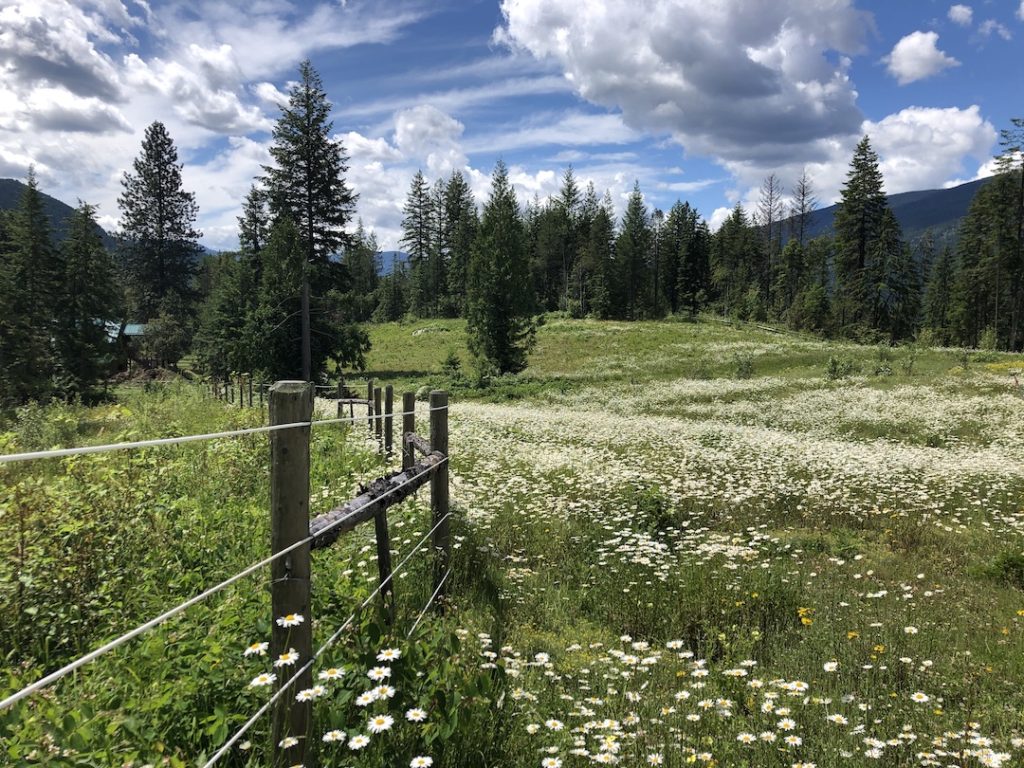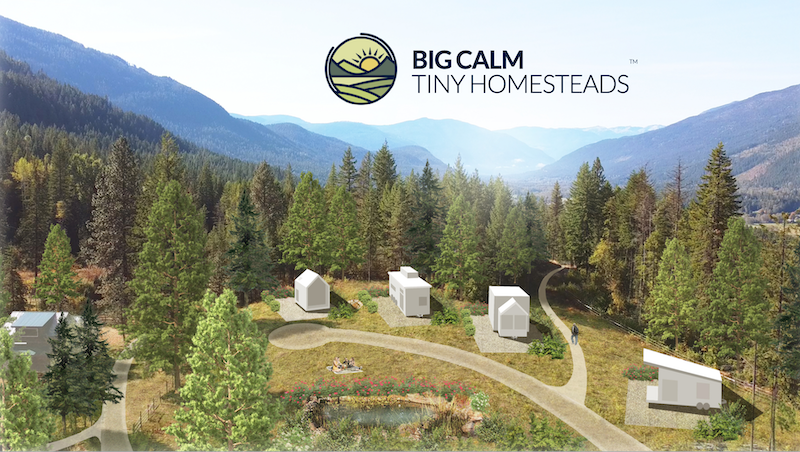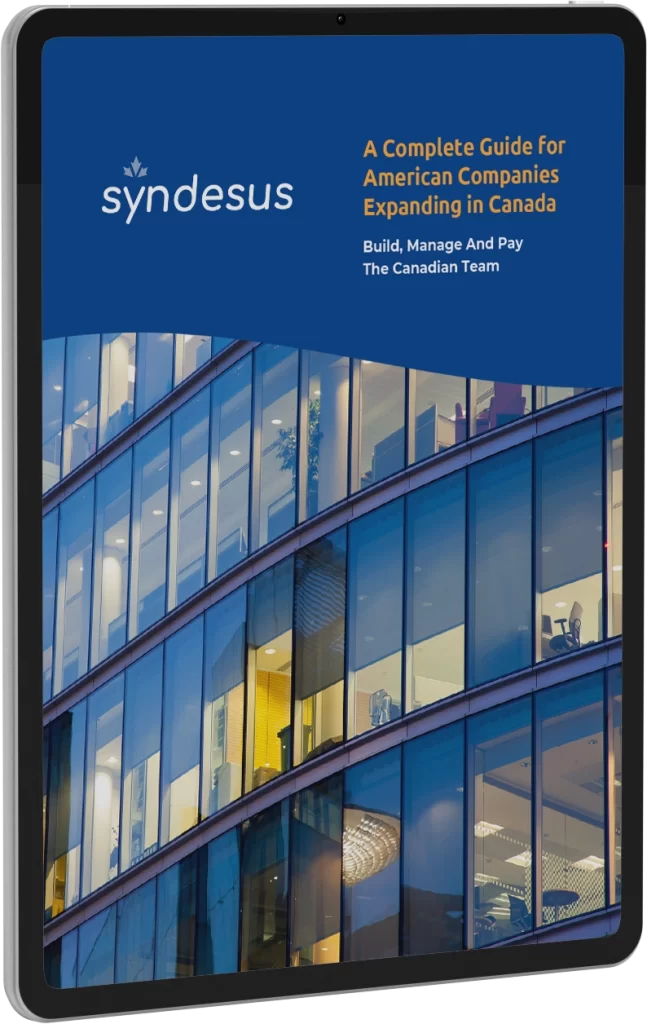Forced remote work sparks an evolution
There’s no doubt that work culture has evolved over the past year. We’ve traded in busy office buildings, trendy tech campuses, and corporate Christmas parties for working in athleisure wear, doing laundry between meetings, and much more screen time.
For the thousands of Canadians working in the United States, the big cities that once promised culture, lifestyle, and dream jobs, turned into paying expensive rent to work from a tiny apartment.
So when the flights were being canceled and the border closures were looming, many Canadian ex-pats took work from home seriously — they simply picked up their laptops and went home to Canada to work remotely for their US companies (most did it legally with a PEO like Syndesus, but many did not – that’s another story).
Surprise! The good work kept getting done even from across the border.
Now that we are all remote work pros, Canadian tech workers are discovering lifestyle options that most of us could only envision in retirement.
With the need for good talent ever-growing across North America, it’s getting less and less important to regularly show up in person at 8 a.m.
Yes, suddenly it’s possible to work your Silicon Valley dream job from “home” and home can be wherever you want.
We are exploring how some Canadian tech workers and our valued PEO clients are turning this opportunity into the ultimate dream lifestyle long before retirement is even a question.
Meet Abby and Steve, Founders of Big Calm – a tiny homestead remote work community in British Columbia’s beautiful and naturally abundant Slocan Valley.
Big Calm, two tech workers find their paradise
What if ‘working from home’ meant that you could keep your big city US tech job, and work remotely from nature? (Real nature, not some park in a big city.)
What if after a long day online, you could ground yourself through regenerative gardening, tranquil hiking trails, and a close-knit community of friends and neighbours?
It’s easy to see why small rural communities — or ‘Zoom Towns’ — are booming across North America. The tiny house movement, minimalism, and the desire for simplicity are growing trends. If one can now work from anywhere, why choose to live and work from a dark and stuffy inner-city condo?
“Mental health is at its lowest point in a long time. Getting your hands dirty, growing your own food, going for a walk in the forest – being closer to nature can no doubt help with improving mental health and achieving a better balance.”
This vision is exactly what inspired tech workers, Steve and Abby Harding, to create Big Calm – a 37-acre, permaculture-focused, tiny homestead community in the heart of BC’s Slocan Valley, that caters to digital workers.
Steve and Abby have a unique way of engaging with the land-based on the principles of permaculture. In its essence permaculture is a systems thinking tool – a way to design space through considerations like integration, patterns, waste elimination, and interaction.
Originally from Calgary, Steve and Abby bought the land for Big Calm in 2019. After burning out from big city life, they fell in love with Slocan’s mountains, lakes, and weather.
The land is situated in an inland temperate rainforest with exceptional biodiversity – making it a perfect climate to grow all kinds of food. It became apparent to the couple that the idea of creating a community for remote workers was not only possible but also highly in demand.
“When you care about what you grow, it shows. It makes healthy food and healthy people,” says Abby.
One of the biggest issues Abby’s noticed in the past year is the collective mental health crisis, and Big Calm plans to take active steps to address this through their unique remote working model.
“When we’re inside hunched over our computers all day, we don’t necessarily think about how nature works,” says Abby.
She and Steve are dedicated to improving mental health through unique programming, community spaces, and finding new ways to live in harmony with the land.
“Mental health is at its lowest point in a long time. Getting your hands dirty, growing your own food, going for a walk in the forest – being closer to nature can no doubt help with improving mental health and achieving a better balance.”
Thousands of Canadian tech workers are still looking to the US for work at high-paying jobs in places like Silicon Valley, but what if there was a way to get the best of both worlds?
How Canadians legally work remotely for US companies
Many workers now have the privilege to work from anywhere that can connect to the internet, and organizations are incorporating more flexibility into their cultures.
“The PEO model represents an opportunity for Canadian talent to be more broadly utilized..."
When it comes to workers from the US or Canadians with US jobs, Abby says it makes a lot of sense to consider using a PEO. The concept is exciting because her tenants will have the option to continue working for their US companies from Big Calm. It may be the first time in history someone can work for an American company from Canada in this way.
“The PEO model represents an opportunity for Canadian talent to be more broadly utilized,” Abby says. “We have a lot of smart people here and because companies no longer have to hire based on where employees live, they’re now looking for the best employee. In this new environment, employment knows no borders.”
Abby highly encourages those interested in Big Calm to consider a PEO like Syndesus. A PEO will take care of taxes, benefits, payroll and healthcare – making it easier for both the employer and employee to get work done remotely for their US companies from Canada.
“It’s a big decision to move to another country for a job. If people were more aware of the services a PEO offers, that’s one less thing someone needs to worry about. It gives them the security to know that there’s someone there who will help make it work.”
Leading the Rural Renaissance
Currently in the development phase, Big Calm is actively seeking eco-minded remote workers for both short and long term stays. So far, the project has attracted people from across Canada and the US, all with diverse backgrounds, credentials, and stories.
The couple has spoken to people from content creators, to scientists, to tech specialists and computer programmers, to health care workers. Whether they’re single, couples, empty nesters, or retirees – they’re all looking to Big Calm for a different way of living and working.
“The more diversity we have in skill-sets, backgrounds, and experience – the stronger our community will be,” says Abby.
The biggest driver for coming to Big Calm, is what the couple calls the ‘Rural Renaissance.’ In short, people are getting out of busy cities. Work-life balance is taking on a whole new meaning.
One study from Stanford University shows the many advantages, including productivity, cost savings, and environmental benefits, to both employees and companies when working from home.
Bottom line: people are healthier and happier when they have a choice to work from where they want.
In addition to a unique working environment, Abby and Steve want to incorporate many ideas into the project’s development. From workshops to concert series, Big Calm is a collaborative place of self-reliance, land stewardship, and above all, community.
“Through Syndesus, there’s a relatively easy way to become an employee for a US company, and if that helps someone achieve their goals of moving to a community like Big Calm, it’s a win-win for everybody including the employer.”

Abby says this is only the beginning, and she anticipates we’ll see many different small remote-working communities popping up in the future, especially as we see changes to legislation around the tiny house movement. She cited one community that is planning to use modern technology, urban planning, and AI to get set up.
“We see these communities as allies even though our visions are different,” says Abby. “There’s more demand and there’ll be plenty of attractive places to park tiny homes and do remote work.”
When asked if Abby has any advice for remote workers who are seeking something different, Abby says that a PEO option makes things easier.
“A PEO just opens up so many doors for everyone and takes off some of the pressure,” she says. “Through Syndesus, there’s a relatively easy way to become an employee for a US company, and if that helps someone achieve their goals of moving to a community like Big Calm, it’s a win-win for everybody including the employer.”
If you’re interested in working from a place like Big Calm, Syndesus can help. We have all the tools you need to set you up to work remotely in Canada, get Canadian healthcare benefits, pay Canadian taxes, while still working remotely for your company in the US
Book a consultation with our sales team today.


